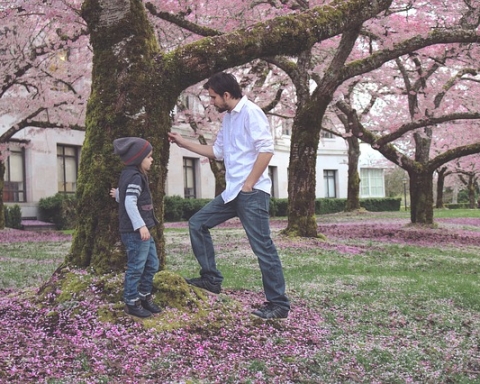Psychologists describe uninvolved parenting as “neglectful parenting“. Therefore, in uninvolved parenting, the parent neglects the child’s physical and emotional needs. Parenting uses different approaches to achieve its ends.
This study identifies several parenting styles that affect how children transition from infancy to adulthood. Each parenting style suits different types of parents. Uninvolved parenting is just one of the parenting styles.
Also, read on this website:
- Types of Parenting Styles and How to Identify Yours
- What are Different Parenting Styles?
- What is Neglectful Parenting?
- What is Authoritative Parenting?
Uninvolved Parenting Style Examples
Uninvolved parenting occurs most often among parents who work away from home and who work for long hours. The result is a rift between the parent and the child because the parent does not spend enough time with his or her child. Some examples of uninvolved parenting are:
- There is emotional distance between the parent and the child because they spend little or no time together.
- The parent provides minimal supervision of the child’s activities. The child is left to do everything on his or her own, from playing to making major decisions.
- The child receives little appreciation, love, or attention. This causes the child to withdraw and become isolated.
- There are no major behavioral expectations for the child. The parent intentionally neglects the child and sometimes avoids contact.
- The parent is not involved in most aspects of the child’s growth. Consequently, the child becomes vulnerable and socially alienated.
Effects of Uninvolved Parenting on Children
It is important to note that the negative effects of uninvolved parenting on children may be difficult to overcome. Furthermore, these effects may greatly influence the child’s development, as expounded in this journal, in the following ways:
- The child is emotionally withdrawn and detached. The child will be lonely most of the time and do everything alone.
- Decision-making is entirely on the child. The child decides what to do and when and is likely to make uninformed choices due to a lack of guidance.
- The child is vulnerable to any negative influences. Thus, the child becomes susceptible to delinquency and has a higher risk of drug and substance abuse.
- The child is prone to stress, anxiety, and depression due to a lack of family support.
- The child learns to depend entirely on oneself and is fearful of depending on people, even emotionally.
Results of Uninvolved Parenting
Research has shown that children who experience uninvolved parenting struggle with a myriad of negative issues, such as:
- The child does not perform well academically due to a lack of guidance from the parent.
- The child displays poor social skills because he or she is always alone.
- The child lacks any attachments to other people later in life because he or she did not have any such attachments during childhood.
- The child tends to make wrong decisions because the parent sets no expectations for the child. As a result, the child is not easy to control and is always misbehaving.
According to research, most parents who practice uninvolved parenting had the same experience as children. It’s also possible that other issues apart from the parent’s busy schedule are a factor. For example, the parent could be going through problems, such as depression and substance abuse, which contribute to the parent’s detachment from his or her child.
References
Nijhof, Karin S., and Rutger CME Engels. “Parenting Styles, Coping Strategies, and the Expression of Homesickness.” Journal of Adolescence 30, no. 5 (2007): 709–720. Retrieved from https://www.sciencedirect.com
Darling, Nancy. “Parenting Style and Its Correlates. ERIC Digest.” (1999). Retrieved from https://www.ericdigests.org













